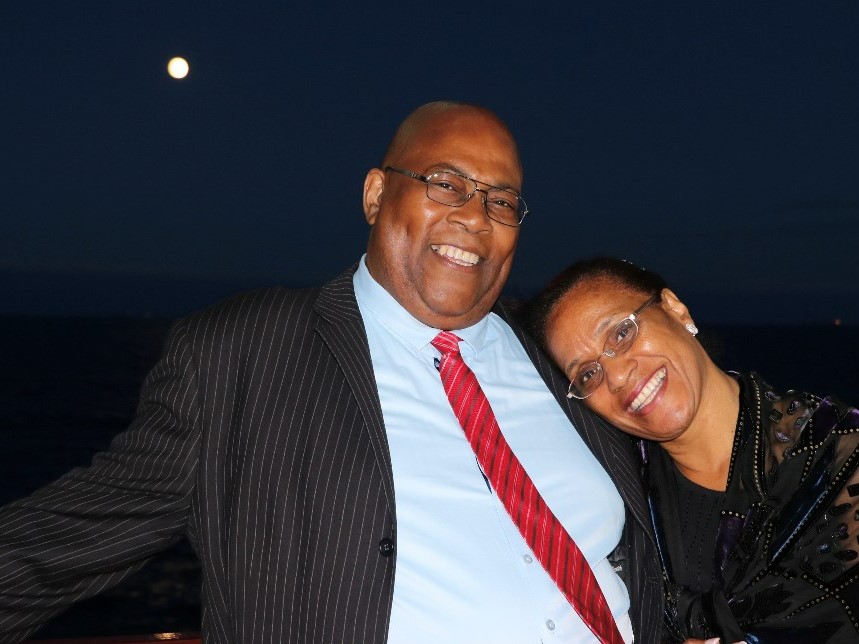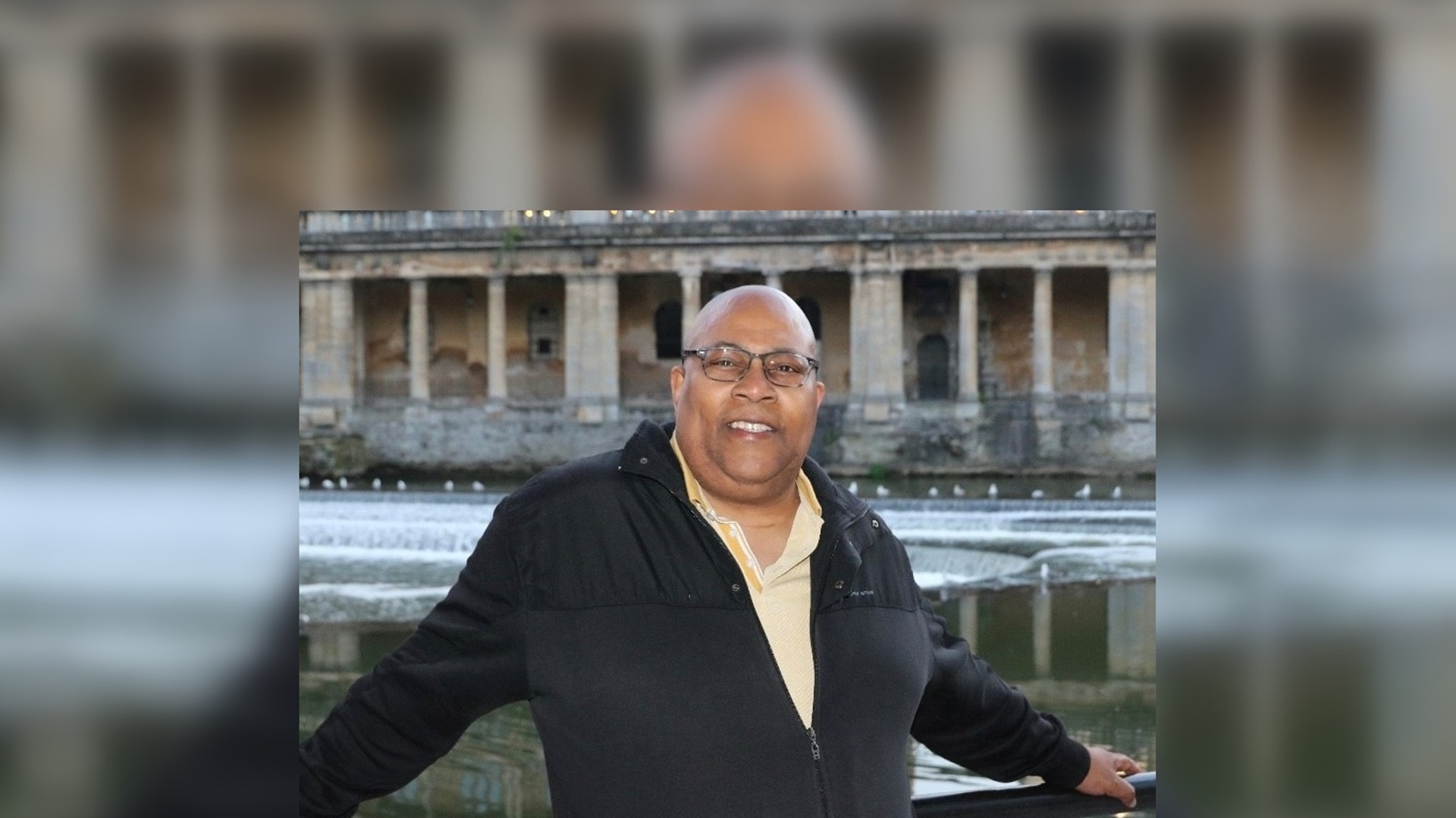When Alfred Samuels was diagnosed with advanced prostate cancer in 2012, it felt as if his world had fallen apart overnight. Doctors said surgery wasn’t an option for him because the cancer had spread beyond his prostate, and he started to lose hope. But then he joined a clinical trial and began treatment with abiraterone, a drug discovered and developed by our scientists, which is now extending the lives of thousands of men worldwide. Eleven years later, Alfred explains how he wouldn’t be here today without our research.
In 2011 I was a fit and healthy 54-year-old at the top of my game. I’d worked in the entertainment industry for nearly 30 years, providing security for celebrities like Beyoncé and Bob Dylan. I’d also been employed by government departments in Africa and the Caribbean.
But my career finished instantaneously when I was diagnosed with advanced prostate cancer.
It was late summer of 2011 when I first noticed something was wrong. I was jogging at the time and felt a sharp pain in my back. I thought I’d just been overtraining, but a week later in the early hours of the morning I woke with what I can only describe as excruciating pain. I went to hospital and was diagnosed with sciatica.
But my wife Grace, who had worked in the NHS, knew something wasn’t right and after a few months passed, pushed for me to have an MRI scan.
I was told to only make short-term plans.
Two weeks later I had an appointment with my doctor, and he told me the news. The worst kind of news you can expect.
My prognosis was not good, and I was told to only plan for the short-term. Telling my five children was so hard. I promised them I would fight, but in reality I went downhill really quickly. I couldn’t walk 30 yards without having to stop. I was breathless and in pain and my career had ended. I was losing hope and thinking, ‘what am I going to do now?’
Our pioneering research is transforming the lives of men with prostate cancer. But too many lives are still lost. By supporting us today, you can help our scientists make more discoveries, develop more effective treatments – and give hope to every dad, brother, uncle, partner or friend with prostate cancer. Support us

Image: Alfred Samuels and his wife Grace. Credit: Alfred Samuels
Joining the STAMPEDE trial
Then in March 2012 I was told about the STAMPEDE trial and a drug called abiraterone. My wife did some research on it and was excited by what she read. I was so lucky to have her by my side. She used to be a nurse and her father also had prostate cancer, so she was able to walk hand-in-hand with me through the decision to join the trial. In the end, it was a no-brainer. I felt I had nothing to lose and everything to gain.
For my part of the trial, I took four tablets of abiraterone a day and had a hormone injection every eight weeks. This was to reduce the testosterone in my body, as it makes the cancer cells grow faster.
Doctors give a blood test to measure PSA levels to look for signs of prostate cancer. When I started on the STAMPEDE trial my initial PSA was 509, when a normal reading should have been between two and four. Over the next six months, I was amazed to see it reduce to 480, then 325, finally to less than 0.1.
The biggest downside was the side effects, from hot flushes and mood swings to weakness in my legs. I went from a striding, bounding person to someone who couldn’t walk very far at all.
But I’m also the type of person who will never give up on what I attempt to do. I did everything I could to stop the weakness, trying to strengthen my muscles with hill walking. I said to myself, ‘Alfred, you’ve got to get a grip on this disease.’ And it really helped getting back into exercise.
'I want to be a voice of hope'
I’m still being treated with abiraterone and Zoladex, a hormone therapy, and I live differently now. My work is focused on being a patient advocate. I try to help men come to terms with their diagnoses and the effects of long-term treatment on their bodies.
Over several years now I have given advice, support, awareness and education to men who have unfortunately followed a similar path. I want to be a voice of hope, inspiration and motivation for men with this disease that disproportionately affects black men, so I use my experience to engage with different cultures and ethnic groups.
I’m also dedicated to raising awareness of the importance of continued research and I advocate to bring that all-important patient voice to the conversation. I’ve published two books based on my experiences and my film, A Survivor Amongst Survivors, has won 27 international awards, including at the London Cine Week and the Tokyo Short Film Fest.
'We need more treatments like abiraterone'
Abiraterone has saved my life and I am grateful for that. But not everyone is as fortunate as I was to get on that trial and respond to the drug as well as I did. We need more treatments like abiraterone. Drugs that enable people to live their lives with cancer, and live them well. It’s not just about surviving, it’s about so much more.
I am a man who, without clinical research would not be here today. I want to see more people benefit from the treatments of the future.
We urgently need better ways to detect prostate cancer earlier, predict drug resistance, and develop smarter, more personalised treatments. Donate today to fund more ground-breaking discoveries and help ensure that every man with prostate cancer can live longer, healthier lives: Donate now
Header image: Alfred Samuels. Credit: Alfred Samuels
